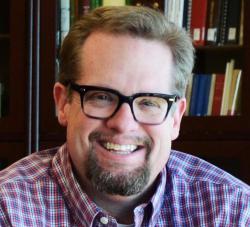John Couretas reminded me that I put up a short note about Jeremy Lott’s life of William F. Buckley, but never returned to give the overall review. Please forgive the oversight! I have combined elements of the first post with additional thoughts to create a whole and to prevent the need to look back to the original post.
And here it is:
The Thomas Nelson company sent me AmSpec alumnus Jeremy Lott’s William F. Buckley. Lott brings attention to some under appreciated territory. His hook is that Bill Buckley was more or less a prophet. His aim is to show how Buckley’s faith influenced his life and his politics.
Only nine pages in the reader is treated to the following quote by JFK in response to a Harvard speaker who crowed that the school had never graduated either an Alger Hiss or a McCarthy. JFK roared, “How dare you couple the name of a great American patriot with the name of a traitor!” (Whatever happened to the Kennedys?)
The book is a quick read and is absolutely packed with interesting information about WFB. I say that as a person who has been reading Buckley and reading about him for many years. Lott’s book (titled William F. Buckley) gets past the half dozen or so anecdotes we’ve all heard and shares lots of great stuff about Buckley as a thinker and controversialist.
A few interesting features:
• Lott compares Buckley’s charges made in God and Man at Yale with the recent experiences of a Yale student (Deepthink!). Perhaps unsurprisingly, but humorously, the recent student utterly vindicates young Buckley’s concerns about his alma mater.
• We get a great moment in which Buckley protested Khrushchev’s visit to America by renting a hall and giving a rousing speech. He told the crowd not to despair because of the moral resources Americans had that the Soviets didn’t and added that the Soviet leader, “is not aware that the gates of hell shall not prevail against us . . . In the end we will bury him.” Further reading reveals that Buckley believed we had a strategic advantage over the Soviets in our belief in God and an afterlife. For the other side, the life they were living was all they had, so how could they risk total annihilation?
• We learn that WFB could well have become the senator for New York instead of his brother, Jim, who served one term. After Robert Kennedy was shot, Buckley decided to stand down in favor of Jim. What might that chamber have been like with the most eloquent and cutting Buckley on the floor????
The book is highly satisfying and extremely well done. I am impressed that an evangelical publishing company has offered the best biography since WFB’s death. We would expect it from ISI or Regnery. Of course, we all await the authorized volume someday to come from Sam Tanenhaus who was so successful in his treatment of Whittaker Chambers’ life.

